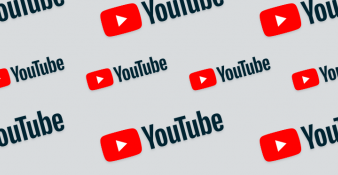9 common questions about Social Media Marketing answered

Social media has played a central role in people's lives for many, many years now. It changed the way people acquire information and shook the world of marketing to its core. Yet many business owners and sceptical marketers are only starting to catch up. Better late than even later. Admittedly, though, there is a good reason for doubting Social Media Marketing: it brings many questions with it.
Here I've gathered the most common questions about social media and did my best to answer them in a short and comprehensive way.
#1. Do I really need Social Media?
The answer is yes. Let me explain why.
- Just because you do not take an interest in Social Media doesn't mean Social Media won't take an interest in you. There are people leaving reviews of your products, complaining, asking questions. You might not see all that but your potential customers and your potential employees will. That's because they will Google your company (or the product category) before buying or going for an interview. Research shows that 80% of people do that.
- Social media is where your target audience is. Apart from maybe a couple of rare exceptions, people of all ages, interests, and socio-economic statuses are on social media. Every popular Social Media platform has a bigger reach than all TV channels combined.
- The slow and painful death of traditional advertising. No doubt, TV, radio, and billboards were powerful once. However, at some point, there was so much advertising that people became immune to it. Our minds learned to filter out anything that looks like an ad. And, pay attention, Social Media Marketing doesn't look like an ad. The whole idea of Social Media is to be an informational and entertaining channel as opposed to a promotional one. And this way it still works for, surprisingly, promotion.
- If done right, Social Media marketing creates trust and loyalty by destroying a harming to businesses feeling that they are a "corporation", a "system" that is made to only suck the money out of the customers. Social Media shows that there are real people working for the company.
- Social media facilitates word-of-mouth marketing. People don't listen to companies, people listen to friends. So when they see a friend on Facebook "liking" a company page, they are more inclined to believe that they truly sell good products.
- And so much more reasons.
#2. How to measure ROI in Social Media?
Measuring social media ROI is one of the biggest frustrations of business owners and one of the most frequently asked questions about social media. Fast Company reported that 88% of 750 surveyed marketing professionals didn’t feel they could accurately measure the effectiveness of their social media campaigns. Truth is, social media has direct and indirect effects that are impossible to measure perfectly. But so are many PR and marketing efforts!
While you can't measure all SMM effects, you should still measure the ones you can.
1. Start with setting your conversion goals. That could be:
- Making online purchases;
- Clicking on a link to dealer website;
- Spending time on landing pages;
- Signing up for a newsletter, engaging in social media interactions.
2. Track conversions.
- Reach. Whatever your opinion on the number of followers is, the more people see your campaign or promotion, the greater your ROI.
- Traffic. Again, your ROI depends on getting people to your website or another URL where conversions happen.
- Social media generated leads. The problem here is that you will only see leads that took some kind of online action. You won't see lurkers: people that take no actions online but are still exposed to your product and may do offline purchases as a result of Social Media exposure.
- Customers - leads that become customers.
- Conversion rate. Tracking the percentage of visitors by social media platform or promotion piece tells you what's working and what's not.
3. Assign monetary value to each conversion by estimating a Lifetime Value of a Customer.
4. Collect incoming traffic and conversion numbers using Google Analytics. Compare with monetary value of those conversions.
5. Determine cost per channel by adding labour and other costs.
6. Use information from steps 4 and 5 to calculate the ROI per social media channel.

#3. Do I need an SMM manager?
Many business owners are lost between believing they need an SMM specialist and not wanting to pay someone to "just go on Facebook". So first, let's write down what should Social Media Marketer actually do:
- Manage a publishing calendar;
- Schedule posts;
- Curate content;
- Monitor brand mentions and keywords;
- Engage with customers and partners (i.e. reply to all comments, reviews, questions on Social Media);
- Review analytics and determine next steps;
- Follow up with connections and on projects;
- Run experiments to optimize social media posts.

What skills should a social media marketer have?
- First and foremost, that are the skills of listening, communicating, and problem-solving. Think of someone that would be able to solve any kind of conflict.
- They should be a storyteller. In a group surveyed, only 24 percent had marketing, business, or advertising degrees, while 50 percent had undergraduate degrees in English, English literature, public relations, or journalism.
- They should be able to read and interpret data. With social listening and Big Data key to the field, it is essential to understand numbers.
As you can see, social media marketing is a truly multi-skilled field.
So do you need to hire a specialist?
That depends mainly on your budget. It's possible to handle social media marketing yourself if you use the right tools (Social Media Management and Social Media Monitoring) and if you keep it simple. While on-going customer service is still essential, everything else is optional. You can limit your posts to once a day and cover only a couple of major platforms.
#4. What should you post?

You should post relevant content that is interesting and/or entertaining to your potential customers. Sounds hard? It really isn't, if you know your target audience.
Imagine you are selling home and kitchen appliances. What is your target audience interested in? In how all these things work; what coffee maker is the best one; why in the world would you need a rice cooker. Besides, maybe, in recipes, nutrition advice, and so on.
If you are stuck for ideas, you can always ask customers directly what they would like to read about. You can also follow influencers in the niche to get inspired and to share their valuable content. Truth is, the more you write, the more you discover unexplored topics or topics that can be looked at from a different angle.
#5. Which social media platforms should my business have a presence on?
- It is common advice to be on Facebook, Twitter, LinkedIn, Google +, and any popular local social network.
- If your product is visually appealing, consider Instagram and Pinterest.
- For a more comprehensive guide, read about the difference between social media platforms and its meaning for your business.
#6. How often should I post?
Buffer conducted a study that answered this question very precisely:
- Twitter – 3 times per day. Engagement decreases slightly after the third tweet.
- Facebook – 2 times per day, at most. 2x per day is the level before likes & comments begin to drop off dramatically.
- LinkedIn – 1 time per day. 20 posts per month (1x per weekday) allows you to reach 60 percent of your audience.
- Google+ – 3 times per day and the more often you post, the more activity you’ll get. There is a positive correlation between frequency and engagement. When posting frequency decreases, the traffic may drop to up to 50%.
- Pinterest – 5x per day, or more. For Pinterest, the more you post the higher the growth is.
- Instagram – 1.5 times per day, or more. Major brands post an average of 1.5 times per day to Instagram. However, there’s no drop-off in engagement for posting more, if you can do it.
- Blog – 2x per week. Companies that increase blogging from 3-5X/month to 6-8X/month almost double their leads.
#7. What time should I post?
A study by Buffer found that:
- The early morning hours appear to be the time in which tweets receive the most clicks, on average.
- Evenings and late at night are the times when your tweets receive the most favorites and retweets, on average.
This other study found that best times to post on other social networks are:
- Facebook 1-4pm weekdays;
- LinkedIn 7-8:30am and 5-6pm Tuesday, Wednesday, and Thursday;
- Tumblr 7-10pm weekdays and 4pm on Fridays;
- Instagram 5-6pm weekdays and 8pm on Mondays;
- Pinterest 2-4pm and 8-11pm weekdays with weekends being the best;
- Google+ 9-11am weekdays.
Keep in mind that times to post depend on your target audience, so do test instead of blindly following the suggestions above.
#8. Can I repost the same content to different social media networks?
Yes! Users would rarely follow the same brand on a number of networks. By reposting the same content, you reach more people. Besides, it leads to network integration: users might find your content on Twitter and later post it on their Reddit/Tumblr/etc page. Moreover, you can post the same content on the same network multiple times, just in case your followers haven't seen it the first time. A life of a Tweet, for example, is only about 5 minutes. So only by posting it 3 or 4 times (on different days and different hours) you can be sure that most of your audience have seen it.
#9. How to handle negative comments on social media?

- Fast. Use a Social Media Monitoring tool to be there right away for any outraged customer. Research shows that people take it better when their complained is answered to quickly, even if the problem is not solved.
- Act friendly and personal. Make an effort to show that you understand the problem and are being as helpful as possible.
- Use humour if appropriate to you brand image.
- Never argue (remember trolls) and never delete any comments (remember Print Screen).
Do you have questions about social media that are not answered here? Comment below and we'll include it in a future post. :)













